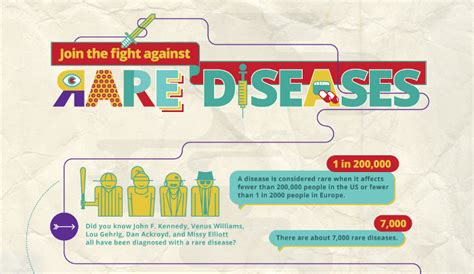prada willi syndrome | prader willi syndrome pictures adults prada willi syndrome Prader-Willi syndrome (PWS) is a genetic condition that affects many parts of the body. Infants with PWS have severe hypotonia (low muscle tone), feeding difficulties, and slow growth. Buy tickets to Chris Young at Resorts World Theatre Las Vegas in Las Vegas - August 10th, 2024. All ticket purchases come with a 100% Buyer Guarantee. Compare prices, seat views, amenities and more to find the best seats using RateYourSeats.com.
0 · willi prader syndrome life expectancy
1 · prader willi syndrome survival rate
2 · prader willi syndrome pictures adults
3 · prader willi syndrome in infancy
4 · prader willi syndrome in females
5 · prader willi syndrome in adults
6 · prader willi syndrome fact sheet
7 · famous people with prader willi syndrome
The Chevrolet One-Fifty (or 150) was the economy/fleet model of the Chevrolet car from 1953 until 1957. It took its name by shortening the production series number (1500) by one digit in order to capitalize on the numerical auto name trend of the 1950s. The numerical designation "150" was also sporadically used in company literature.
willi prader syndrome life expectancy
Prader-Willi (PRAH-dur VIL-e) syndrome is a rare genetic disorder that results in a number of physical, mental and behavioral problems. A key feature of Prader-Willi syndrome is a constant sense of hunger that usually begins at about 2 years of age.
prader willi syndrome survival rate
Prader–Willi syndrome (PWS) is a rare genetic disorder caused by a loss of function of specific genes on chromosome 15. [2] In newborns, symptoms include weak muscles, poor feeding, and slow development. [2] Beginning in childhood, those affected become constantly hungry, which often leads to obesity and type 2 diabetes. [2]Prader-Willi syndrome (PWS) is a rare genetic condition that affects your child’s metabolism and causes changes to their body and behavior. They have severe low muscle tone and poor feeding during early infancy, followed by a tremendous appetite that develops between 2 .
Diagnosis. Typically, doctors suspect Prader-Willi syndrome based on signs and symptoms. A definitive diagnosis can almost always be made through a blood test. This genetic testing can identify abnormalities in your child's chromosomes that indicate Prader-Willi syndrome.Prader-Willi syndrome (PWS) is a genetic condition that affects many parts of the body. Infants with PWS have severe hypotonia (low muscle tone), feeding difficulties, and slow growth. Prader-Willi syndrome (PWS) is a rare, complicated condition that affects many parts of your body. It stems from a problem with one of your chromosomes (a strand of DNA that carries your genes).
Prader-Willi syndrome is a complex genetic condition that affects many parts of the body. In infancy, this condition is characterized by weak muscle tone (hypotonia), feeding difficulties, poor growth, and delayed development.
Prader-Willi syndrome is a rare genetic condition that causes a wide range of physical symptoms, learning difficulties and behavioural challenges. It's usually noticed shortly after birth. Prader-Willi syndrome (PWS; also known as Prader-Labhart-Willi syndrome) is a rare, complex, multisystem, neurological disorder caused by loss of paternally expressed genes on chromosome 15q11-q13. Diagnosis is by identification of characteristic features with confirmation by genetic testing.
prader willi syndrome pictures adults
prader willi syndrome in infancy
dior fall 2014 lipstick
One of the main symptoms of PWS is the inability to control eating. In fact, PWS is the leading genetic cause of life-threatening obesity. Other symptoms include low muscle tone and poor feeding as an infant, delays in intellectual .
Prader-Willi (PRAH-dur VIL-e) syndrome is a rare genetic disorder that results in a number of physical, mental and behavioral problems. A key feature of Prader-Willi syndrome is a constant sense of hunger that usually begins at about 2 years of age.
Prader–Willi syndrome (PWS) is a rare genetic disorder caused by a loss of function of specific genes on chromosome 15. [2] In newborns, symptoms include weak muscles, poor feeding, and slow development. [2] Beginning in childhood, those affected become constantly hungry, which often leads to obesity and type 2 diabetes. [2]Prader-Willi syndrome (PWS) is a rare genetic condition that affects your child’s metabolism and causes changes to their body and behavior. They have severe low muscle tone and poor feeding during early infancy, followed by a tremendous appetite that develops between 2 .
Diagnosis. Typically, doctors suspect Prader-Willi syndrome based on signs and symptoms. A definitive diagnosis can almost always be made through a blood test. This genetic testing can identify abnormalities in your child's chromosomes that indicate Prader-Willi syndrome.Prader-Willi syndrome (PWS) is a genetic condition that affects many parts of the body. Infants with PWS have severe hypotonia (low muscle tone), feeding difficulties, and slow growth.
Prader-Willi syndrome (PWS) is a rare, complicated condition that affects many parts of your body. It stems from a problem with one of your chromosomes (a strand of DNA that carries your genes).Prader-Willi syndrome is a complex genetic condition that affects many parts of the body. In infancy, this condition is characterized by weak muscle tone (hypotonia), feeding difficulties, poor growth, and delayed development.Prader-Willi syndrome is a rare genetic condition that causes a wide range of physical symptoms, learning difficulties and behavioural challenges. It's usually noticed shortly after birth.
Prader-Willi syndrome (PWS; also known as Prader-Labhart-Willi syndrome) is a rare, complex, multisystem, neurological disorder caused by loss of paternally expressed genes on chromosome 15q11-q13. Diagnosis is by identification of characteristic features with confirmation by genetic testing.

prader willi syndrome in females
prader willi syndrome in adults
DEFINITION. HF is a complex clinical syndrome identified by presence of current or prior characteristic symptoms, such as dyspnea and fatigue, and evidence of cardiac dysfunction as a cause of these symptoms (eg, abnormal left ventricular [LV] and/or right ventricular [RV] filling and elevated filling pressures) [ 1-5 ].
prada willi syndrome|prader willi syndrome pictures adults



























